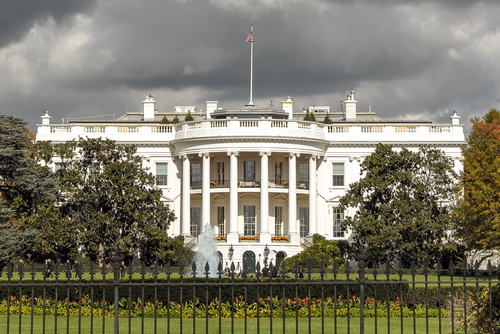Dispute over White House aide's hush agreement should be tossed from federal court, DOJ argues

Image from Shutterstock.com.
The U.S. Department of Justice has asked a federal judge to toss a lawsuit filed by a former White House communications aide who is seeking to prevent enforcement of a nondisclosure agreement he signed with the Trump campaign.
The DOJ argues that a private arbitration is required to decide whether the former aide, Cliff Sims, may sue in federal court, the Hollywood Reporter reports. Sims’ nondisclosure agreement included an arbitration clause that requires an arbitrator to decide on the validity of the clause, according to the the brief, filed April 25.
The dispute stems from Sims’ book, Team of Vipers: My 500 Extraordinary Days in the Trump White House. The Trump campaign had filed an arbitration claim against Sims in January after the book was published.
Sims responded with a lawsuit, filed in Washington, D.C., federal court Feb. 11, that claims the nondisclosure and arbitration agreement he signed with the Trump campaign can’t be used to stifle his First Amendment rights, the New York Times has reported.
Sims said the government was engaging in a “subterfuge” to use the Trump campaign to silence Sims “when it is really the intense powers of the presidency coming down upon a sole individual.”
In its April 25 brief, the government refers to the Trump campaign as a private employer, the Hollywood Reporter points out. “Private employers do not violate the First Amendment when they bring claims in arbitration to enforce a nondisclosure agreement even if the employee they are enforcing that agreement against later served in government,” the brief says.
The brief goes beyond the arbitration dispute to argue that courts can’t grant an injunction or declaratory relief against the president in his official capacity for executive decisions. The government also argues that Sims can’t prove an injury necessary to obtain standing, since his book has been published and he promoted it on media tours.
“Nowhere does plaintiff make allegations showing how the campaign’s initiation of an arbitration action has had the effect of censoring, silencing or even chilling his speech,” the brief says.



